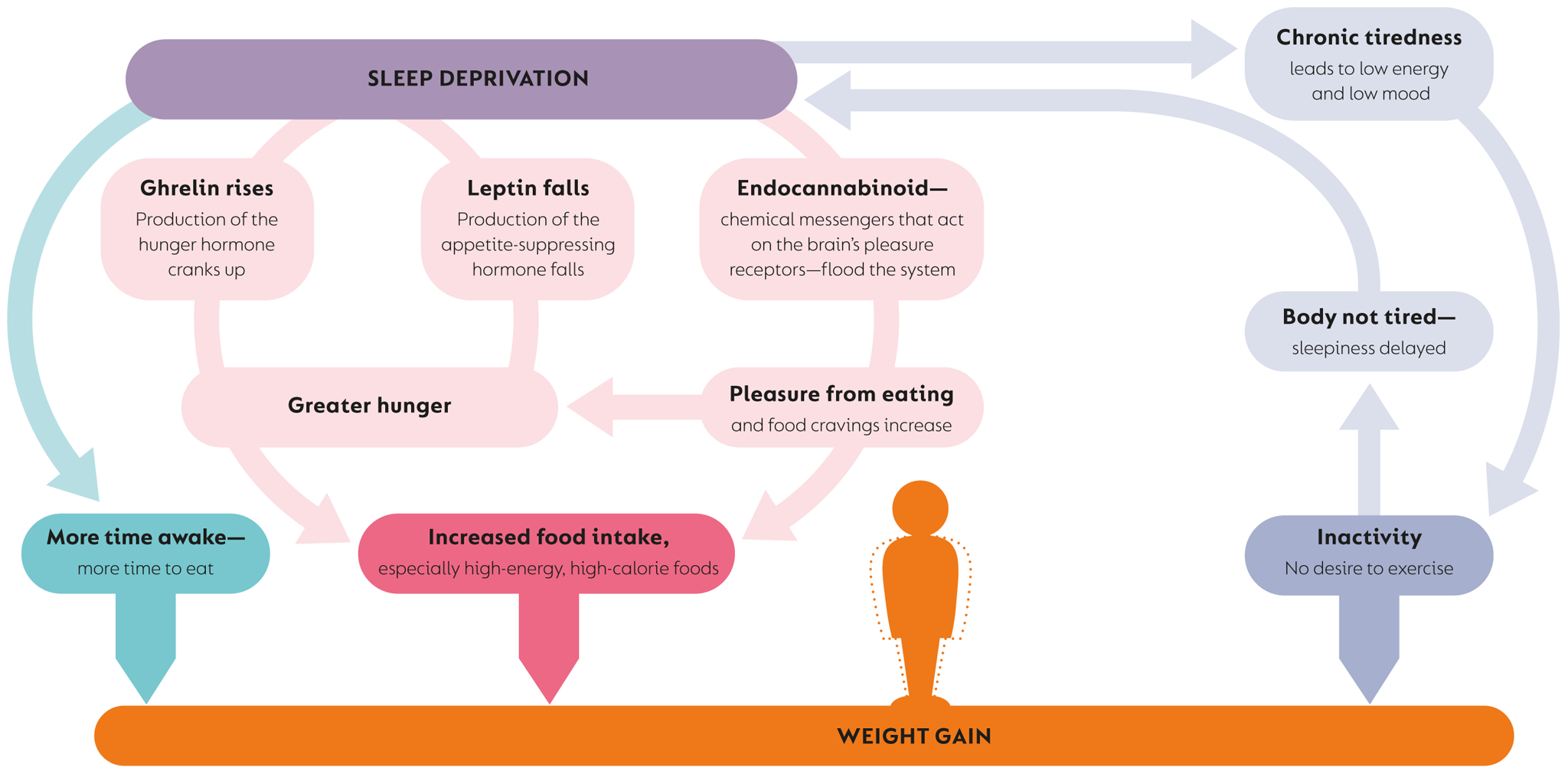Will lack of sleep affect my weight?
When sleep deprived, we feel low in energy, and it’s tempting to rely on high-energy, sugary snacks to keep us going. But lack of sleep affects our food choices in other, more profound ways.
A higher BMI (body mass index—a measure of whether a person’s weight is healthy) has been shown to be associated with poor sleep, so could it be that it’s actually sleep deprivation that’s somehow making us fat? The answer is a resounding “yes.” In a study, just one night of poor sleep (defined as less than five hours) led to people eating up to 385 extra calories the next day. Those calories quickly add up, and a month of poor sleep can lead to an increase in body fat of around 2 pounds (1 kg).
Poor sleep, poor eating
Recent research indicates that insufficient sleep plays havoc with important appetite-controlling hormones in the body. In combination with the other consequences of poor sleep, it’s a recipe for weight gain.

n Double-tap image to read the labels
HOW SLEEP AFFECTS EATING
When we are fully rested, leptin (the appetite-suppressing hormone) is high, and ghrelin (the hormone responsible for hunger) is low. Lack of sleep reverses this, so you are hungrier than usual when you wake. Poor sleep also raises the level of endocannabinoids in the blood. These brain chemicals magnify ghrelin-induced cravings, making it difficult to resist instantly satisfying junk food. This is why when you’re sleep deprived and have a choice between a spinach omelet or a chocolate donut, you feel powerfully driven toward the latter.
Less sleep also means more time awake, and with our brain’s reward centers in overdrive, we become highly susceptible to any food cues, eating far more than we would normally. Added to this is the fatigue we feel after a bad night’s sleep, which saps our motivation to exercise. Moving less means burning fewer calories, so all the extra food is stored as fat. Gaining weight can turn a relatively mild sleeping issue into a more serious condition, such as sleep apnea.
BETTER SLEEP FOR WEIGHT MANAGEMENT
Increasing the amount of sleep you get will quickly restore leptin and ghrelin levels to normal and prevent your brain from turning itself into a calorie-seeking missile. More sleep also means more energy and, often, a lighter mood—helping you find the drive needed to address your diet and exercise positively in the longer term.
